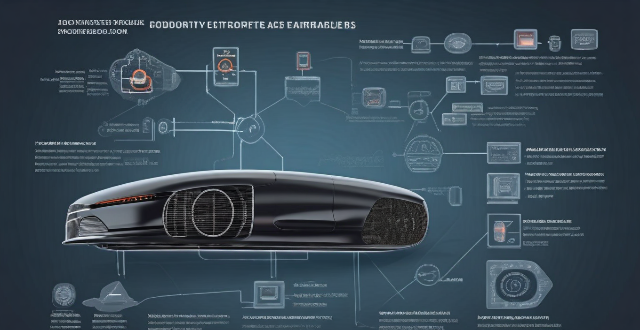Climate control technology enhances fuel efficiency in modern cars by reducing engine workload, using advanced heat exchangers, variable displacement compressors, electric cooling fans, and smart climate control systems. These advancements not only improve fuel efficiency but also provide a comfortable driving experience for passengers.

How Climate Control Technology Enhances Fuel Efficiency in Modern Cars
Climate control technology plays a crucial role in enhancing fuel efficiency in modern cars. This technology helps to maintain a comfortable temperature inside the vehicle while reducing the workload on the engine, which ultimately leads to better fuel efficiency. In this article, we will discuss how climate control technology contributes to better fuel efficiency in modern cars.
1. Reduced Engine Workload
One of the primary ways climate control technology improves fuel efficiency is by reducing the engine's workload. When the air conditioning or heating system is turned on, it requires additional power from the engine, which can lead to increased fuel consumption. However, with advanced climate control technology, the system is designed to operate more efficiently, requiring less power from the engine.
Benefits:
- Lower fuel consumption: By reducing the engine's workload, the car consumes less fuel, resulting in better fuel efficiency.
- Improved performance: With the engine working at a lower load, the car's overall performance is improved, providing a smoother and more enjoyable driving experience.
2. Advanced Heat Exchangers
Modern cars are equipped with advanced heat exchangers that help to transfer heat between the engine and the cabin more efficiently. These heat exchangers are designed to minimize energy loss, ensuring that the climate control system uses less power from the engine.
Benefits:
- Reduced energy loss: Advanced heat exchangers help to reduce energy loss, allowing the climate control system to operate more efficiently.
- Improved comfort: By transferring heat between the engine and the cabin more effectively, the climate control system can maintain a comfortable temperature inside the vehicle without overworking the engine.
3. Variable Displacement Compressors
Many modern cars use variable displacement compressors in their climate control systems. These compressors adjust their output based on the cooling demand, ensuring that the system operates at the optimal level of efficiency.
Benefits:
- Reduced energy consumption: By adjusting their output based on cooling demand, variable displacement compressors help to reduce energy consumption, leading to better fuel efficiency.
- Improved reliability: These compressors are designed to last longer and require less maintenance than traditional fixed-displacement compressors, making them a reliable choice for modern vehicles.
4. Electric Cooling Fans
Electric cooling fans are used in modern cars to regulate the temperature of the engine and other components. These fans are controlled by sensors that monitor the temperature of the engine and activate the fans as needed. By using electric cooling fans instead of traditional mechanical fans, the climate control system can operate more efficiently, reducing the strain on the engine.
Benefits:
- Improved fuel efficiency: Electric cooling fans help to maintain a consistent temperature inside the vehicle, reducing the need for the engine to work harder and consume more fuel.
- Reduced noise: Electric cooling fans operate quietly compared to mechanical fans, providing a more comfortable driving experience for passengers.
5. Smart Climate Control Systems
Modern cars are equipped with smart climate control systems that use advanced algorithms to optimize the temperature inside the vehicle. These systems learn the driver's preferences and adjust the climate control settings accordingly, ensuring that the system operates at peak efficiency.
Benefits:
- Personalized comfort: Smart climate control systems provide personalized comfort by learning the driver's preferences and adjusting the settings accordingly.
- Improved fuel efficiency: By optimizing the climate control settings, these systems help to reduce the strain on the engine, leading to better fuel efficiency.
In conclusion, climate control technology plays a significant role in enhancing fuel efficiency in modern cars. By reducing the engine's workload, using advanced heat exchangers, variable displacement compressors, electric cooling fans, and smart climate control systems, automakers have been able to create vehicles that provide both comfort and improved fuel efficiency. As technology continues to advance, we can expect even greater improvements in fuel efficiency from future generations of vehicles.